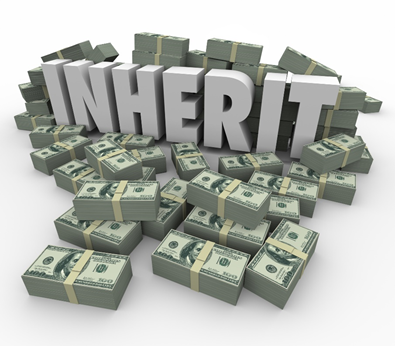family trust
Updated on 2023-08-29T12:01:14.076763Z
What is a family trust?
A trust created for the benefit of people related to each other by blood, affinity or law is called a family trust. A family trust is often used to pass on the family's wealth from generation to generation. A family trust is also a means for estate planning- it helps to customise how to provide for the family during the lifetime and after the person's death setting up the trust. Often there are country-specific rules that lay down who is eligible to be a member of a family trust. An Australian family trust is a discretionary trust and is established to maintain a family's asset or aid the conduction of a family business. A family trust may be set up in two ways: testamentary trust or a living trust. In the former case, the trust is set up through a will and comes into existence only upon the grantor's death. A living trust is implemented during the lifetime of the grantor.
Summary
- A family trust is a trust created by an entity to benefit his/ her family member.
- The grantor, trustee and beneficiaries are the parties to any family trust.
Frequently Asked Questions (FAQs)
Who are the parties to a family trust?
Broadly there may be three parties to a family trust-
- Grantor
- Trustee
- Beneficiaries
There is a fiduciary relationship in family trusts. The grantor is the individual who establishes the trust and transfers money or their assets to it. Grantor may also be referred to as trustor. The beneficiaries of the trust and the investments and assets within it can all be changed by the grantors.
Appointed by the grantor, the trustee is the person or entity in charge of looking after and administering the assets on behalf of the beneficiaries. Trustees have the authority and duty to make alterations and incorporations in the trust as advised by the grantor. Trustees may be individuals or financial institutions. It is the responsibility of the trustee to invest and manage the funds of the trust. The trustee also takes care of the income distribution to the beneficiaries at the end of each financial year.
The beneficiaries are the people who receive a financial benefit from the trust. Some family trust beneficiaries are usually grandparents, parents, spouse, children, brothers, sisters, aunts, uncles, nephews, nieces, etc. A family trust may also include other family businesses or companies or other family trusts.
What are the benefits associated with the formation of a family trust?
Including money and assets in a family trust may be a hedge from bankruptcy or failure of the business. Creditors may not use assets in a family trust for settlements that involve property- this is often a case in broken marriages. Family trusts are also beneficial when family members are vulnerable due to age or any factors that disrupt their ability to earn. Family trusts help to set aside funding sources for the education of children or even grandchildren. When assets are under a family trust, they are safe from excessive, unreasonable spending. For example, families with a member who is addicted to gambling may lose lots of money and even assets, but if it is a part of a trust, they remain safeguarded against such instances. Such a trust ensures financial security for the surviving spouse. Family trusts also provide benefits in taxation. There may not be any unwanted claims because the beneficiaries are limited to the specifications in the trust deed. A trust deed is a document containing all the terms and conditions about managing and distributing assets under the trust. It also outlines the rights and duties of the trustee and beneficiaries. The grantor executes the deed.

Image source © Dragon345 | Megapixl.com
What is the difference between a revocable and irrevocable trust?
A revocable trust can be modified or revoked partially or fully. Such trusts are also called living trust because they are created during the grantor's lifetime, and the grantor transfers the assets to the trust and has the power of alteration. However, the assets are not protected in such a case because during the grantor's lifetime, the assets are available to the grantor's creditors.
Usually, on the death of the grantor, the trust becomes irrevocable. An irrevocable trust cannot be altered after its creation. Even the grantor cannot pull out any property once it is entered into the trust. An irrevocable determinate trust is one that clearly defines who the beneficiaries are and specifies what their benefits will be. On the other hand, an irrevocable indeterminate trust only specifies the beneficiaries but not their beneficial interests.
Who is a primary beneficiary?
The primary beneficiary comprises the entities who would receive the benefits from the trust either on the grantor's demise or if the grantor loses their rights on the trust holdings.
Who is a secondary beneficiary?
In a situation where the primary beneficiary dies before the grantor's death, the secondary beneficiary or the contingent beneficiary is the entity that receives the benefit that otherwise would have gone to the primary beneficiary.

© Iqoncept | Megapixl.com
What is the tax implication for such trusts in the US?
In the US, the grantor has control over the income generated from the trust or the assets. It is all recorded in the grantor's tax return for which they have to do the filing. The trust does not file a separate tax return. This is the case for grantor trust where like a sole proprietorship, the trust and the grantor are regarded as the same entity.
In the case of non-grantor trusts, the trust is considered a separate legal entity. The trust pays income tax on the income that is generated by the assets. If the benefits are distributed to the beneficiaries, then the tax is deducted from the beneficiary and the trust manager is responsible for the procedures of each beneficiary.
How is a family trust taxed in Australia?
Usually, there is no income tax on a family trust. Instead, the income is distributed to the beneficiaries, and the beneficiaries have to pay according to their respective tax rates. However, if there is a situation where income is not distributed to the beneficiaries, the trust pays the tax and at the highest marginal tax rate.